Why would an otherwise healthy Munchkin cat suddenly become a picky eater?
Munchkin cats are known for their soft fur and short legs, much like a mini Corgi. Often, though, they bring unique worries for their owners. When a Munchkin cat stops eating, it’s really concerning. Dealing with their loss of appetite promptly is key to keeping them healthy and happy.
Key Takeaways
- A Munchkin cat not eating can be due to behavior or health issues.
- Stress and changes at home can affect their eating.
- Health issues might include mouth pain or long-term illnesses.
- Figuring out the cause is vital for your cat’s health.
- Seeing a vet if eating problems continue is important.
Understanding the Munchkin Cat Breed
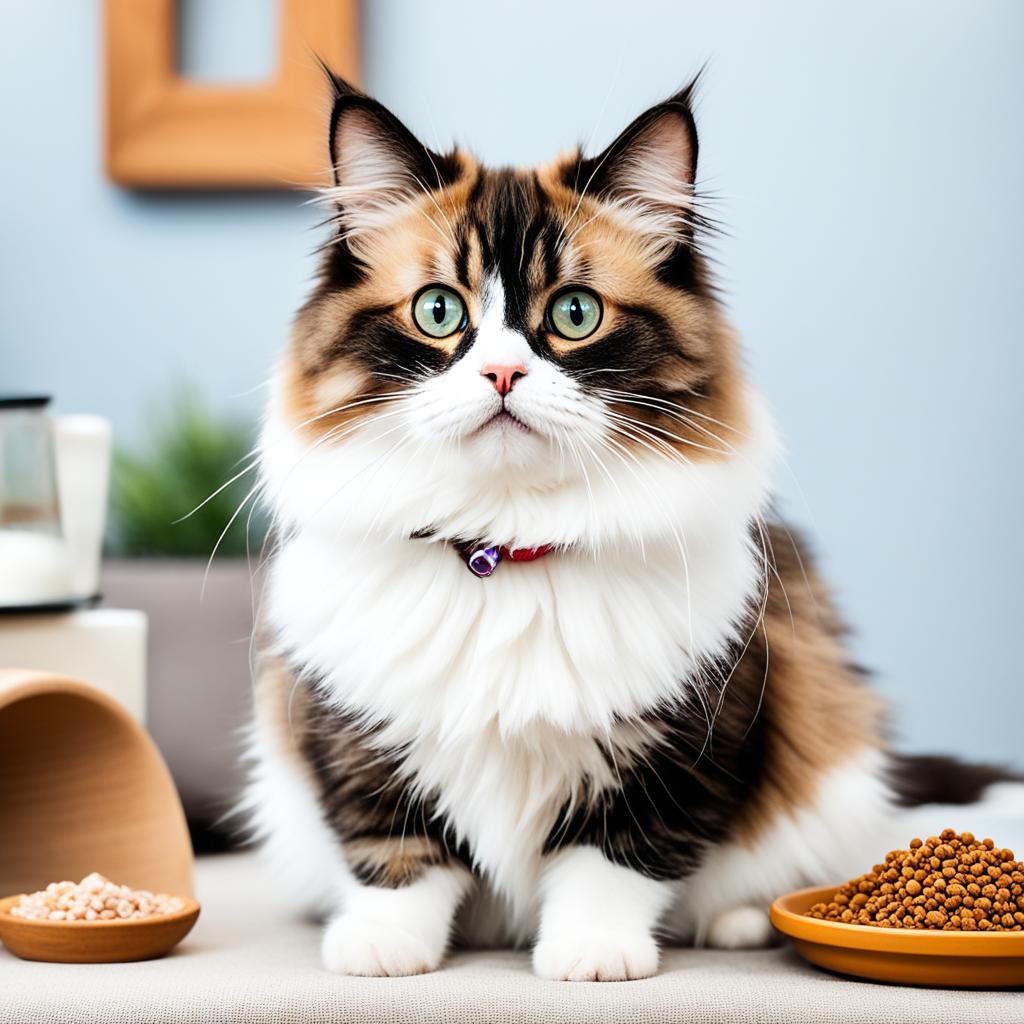
The munchkin cat breed is well-known for its distinct look and friendly nature. We will explore its history, looks, and special health needs. This will help you get to know this lovable breed better.
The Origin and History
In 1983, a cat with short legs was found under a car. This marked the start of the munchkin breed. The International Cat Association (TICA) accepted them as an official breed in 1995. While they are adorable, there are debates around breeding these cats ethically.
Physical Characteristics
Munchkin cats are easily recognized by their short legs, a result of a genetic twist. Their legs do not stop them from being playful or quick. They have mid-sized bodies and soft, colorful coats that make them very appealing.
Unique Health Considerations
The mutation for short legs might also bring some health issues. Munchkin cats could face problems like hyperthyroidism, arthritis, and back issues. It’s important to breed them carefully and keep an eye on their health.
Munchkin cats are not just cute; they need special care due to their genetics. Knowing about this breed helps us take the best care of them. This way, they can live a joyful and healthy life.
Common Health Problems in Munchkin Cats
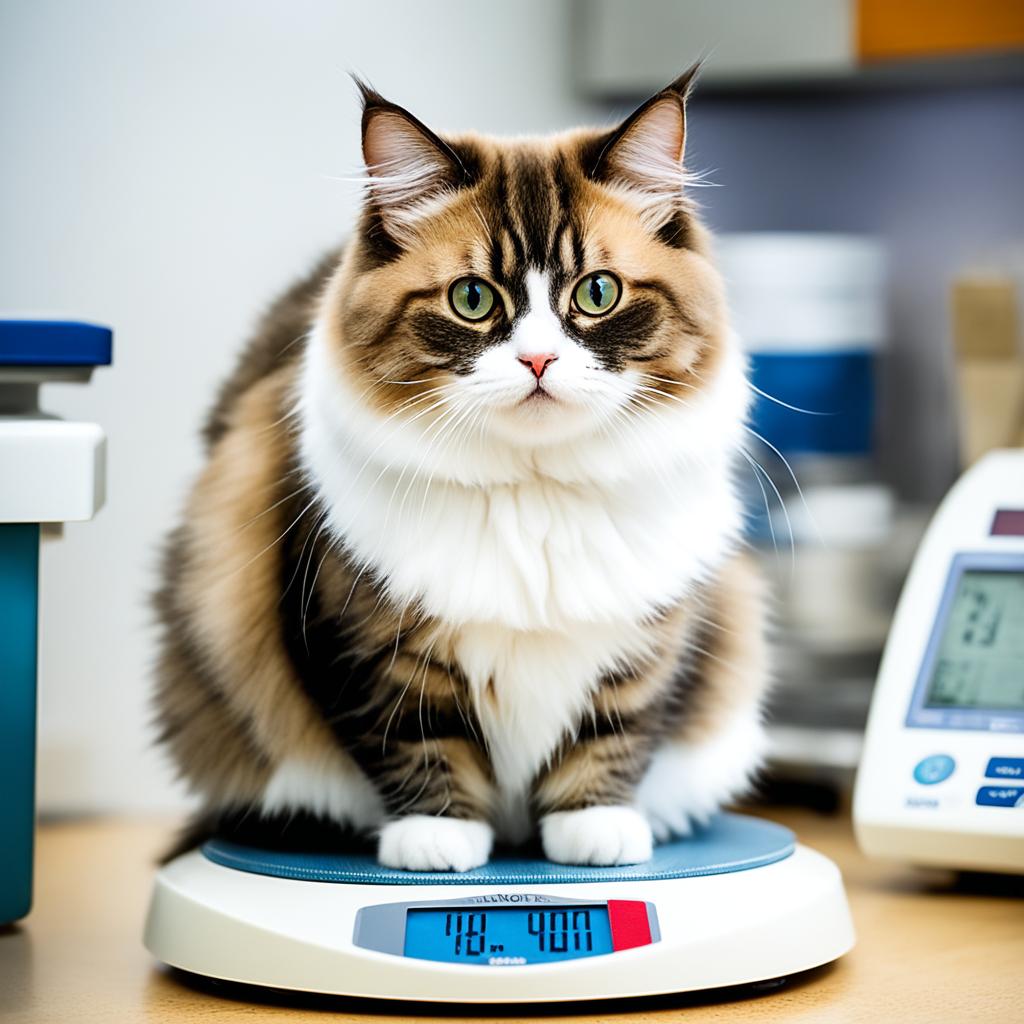
Munchkin cats are cute but might face some health issues. Knowing about these problems helps keep your cat healthy.
Hyperthyroidism
When munchkin cats get older, they can develop hyperthyroidism. This shows up as weight loss, more hunger, more thirst, and being very active. Watching for these signs early can help a lot.
Osteoarthritis
Munchkin cats may look energetic but can get osteoarthritis in munchkin cats. This condition causes joint pain and makes it hard to move. Regular vet visits and early treatment are important for them.
Spinal Problems
Munchkin cats can also have serious spine issues. For example, lordosis makes their spine curve too much. This can lead to big problems and might need surgery if it’s really bad. Spotting discomfort or weird postures early is crucial.
Why Is My Munchkin Cat Not Eating?

It’s key to explore why a munchkin cat may not eat. Look at their behavior and any possible health issues. Stress, new surroundings, or health problems might be the cause. Always pay attention to any changes in how they act.
Identifying Potential Causes
Understanding why a munchkin cat won’t eat can feel hard. But, looking at certain signals makes it easier. Things like behavior and health are important. They give us clues on why your cat isn’t eating.
- Behavioral causes – changes in environment, stressors.
- Medical conditions – dental problems, chronic diseases.
Behavioral Factors
Behavioral issues might be why your munchkin cat isn’t eating. They could be stressed from changes at home. Or, their routine might be off. Even simple changes in their space can affect them.
Munchkin cats are delicate. Minor changes can really shake up their routine. Knowing your cat’s behavior helps keep their eating on track.
Medical Reasons
If it’s not behavioral, then it might be something medical. Serious health issues could be at the root. It’s important to look for signs like:
- Persistent vomiting or diarrhea.
- Pain when chewing.
- Lethargy or weakness.
If health issues are suspected, it’s time to see the vet. A vet can run tests. They will find out what’s wrong and suggest treatments or diet changes.
| Potential Cause | Description | Solution |
|---|---|---|
| Stress | Caused by environmental or social changes. | Provide a calm, stable environment. |
| Dental Issues | Pain in the teeth or gums making eating difficult. | Schedule a veterinary dental checkup. |
| Chronic Illness | Ongoing health issues like kidney disease. | Follow vet-prescribed treatment plans. |
Behavioral Reasons for Appetite Loss

It’s baffling when your cute munchkin cat won’t eat its favorite meals. Often, changes in behavior can affect a munchkin cat’s appetite.
Stress and Anxiety
Stress from various sources can make a munchkin cat lose its appetite. Munchkin cats are very sensitive and loving. Things like moving, new people, or loud noises can make them anxious. When stressed, they may not want to eat. This is how they try to handle their anxiety.
Environmental Changes
Many environmental changes can worry munchkin cats. Moving the litter box or their food area can upset them. They may feel confused when things are not in their usual places. This can lead to eating less. Even small changes in their surroundings can affect their eating habits a lot.
Social Factors and Interactions
Munchkin cats care a lot about socializing. Bringing in a new pet or new family members, or even adjusting your routine can shake them up. These changes in their social life can affect how comfortable they feel. This, in turn, can change how much they eat.
| Behavioral Factor | Impact on Appetite |
|---|---|
| Stress and Anxiety | Reduces food interest due to discomfort |
| Environmental Changes | Causes disorientation, leading to appetite loss |
| Social Interactions | Changes in social dynamics can result in reduced eating |
Medical Reasons for Appetite Loss

If your munchkin cat stops eating its favorite meal, there might be a medical issue. We’ll look at why this might happen.
Gastrointestinal Issues
Gastrointestinal problems can make your munchkin cat uncomfortable. This might reduce how much they want to eat. Look out for vomiting, diarrhea, or bloating.
Ensuring they have the right diet and talking to your vet can help. It might reduce their discomfort.
Dental Problems
Don’t forget about dental health in your munchkin cat. Bad teeth can make eating painful. This might make them avoid food.
Regular dental check-ups and good oral hygiene keep dental problems away.
Chronic Illnesses
Long-term health issues could also be behind your cat not eating. Conditions like kidney disease or hormonal issues might lower their appetite. If they don’t eat much, see a vet for possible chronic illnesses.
Early detection and tailored treatment are key for helping them.
| Common Issue | Symptoms | Recommended Action |
|---|---|---|
| Gastrointestinal Problems | Vomiting, Diarrhea, Bloating | Veterinary Consultation, Diet Adjustment |
| Dental Problems | Painful Chewing, Gingivitis, Periodontal Disease | Regular Dental Check-ups, Good Oral Hygiene |
| Chronic Illnesses | Persistent Appetite Loss, Other Symptoms (e.g., lethargy) | Thorough Vet Evaluation, Tailored Treatment |
How to Encourage Your Munchkin Cat to Eat
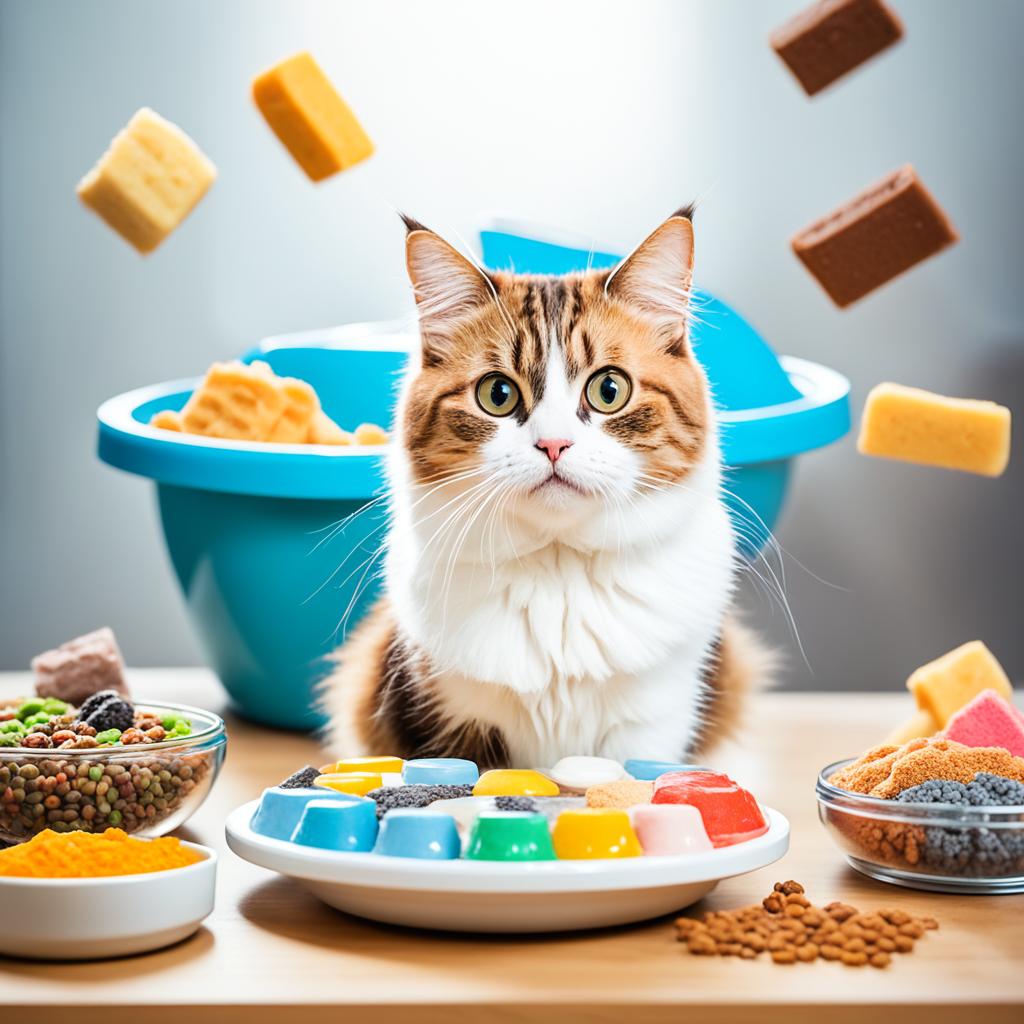
Every munchkin cat owner understands the struggle of a cat not eating. Helping them eat is often easy. It usually involves a little creativity in their meals.
Consider changing your cat’s food often. Mixing different flavors and textures can make a big difference. Just like us, cats can get tired of eating the same thing. You can try mixing wet and dry food, or putting a bit of tuna juice on the kibble.
Using Appetite Stimulants
If your munchkin still doesn’t eat, ask your vet about appetite stimulants. These can help make food more appealing. They work especially well if your cat is recovering from an illness or dealing with stress.
Adjusting Feeding Environment
Your munchkin’s eating area ambiance matters. Making it an inviting place can increase their interest in food. Keep it quiet and free from other pets. You might also try using elevated bowls or puzzle feeders to make meals more engaging.
| Tip | Benefit | Implementation |
|---|---|---|
| Introduce Variety | Keeps meals interesting | Mix wet and dry foods, add flavors |
| Appetite Stimulants | Encourages feeding | Consult with a vet for recommendations |
| Adjust Feeding Environment | Reduces stress, improves comfort | Create a quiet, separate dining area |
When to Visit the Vet
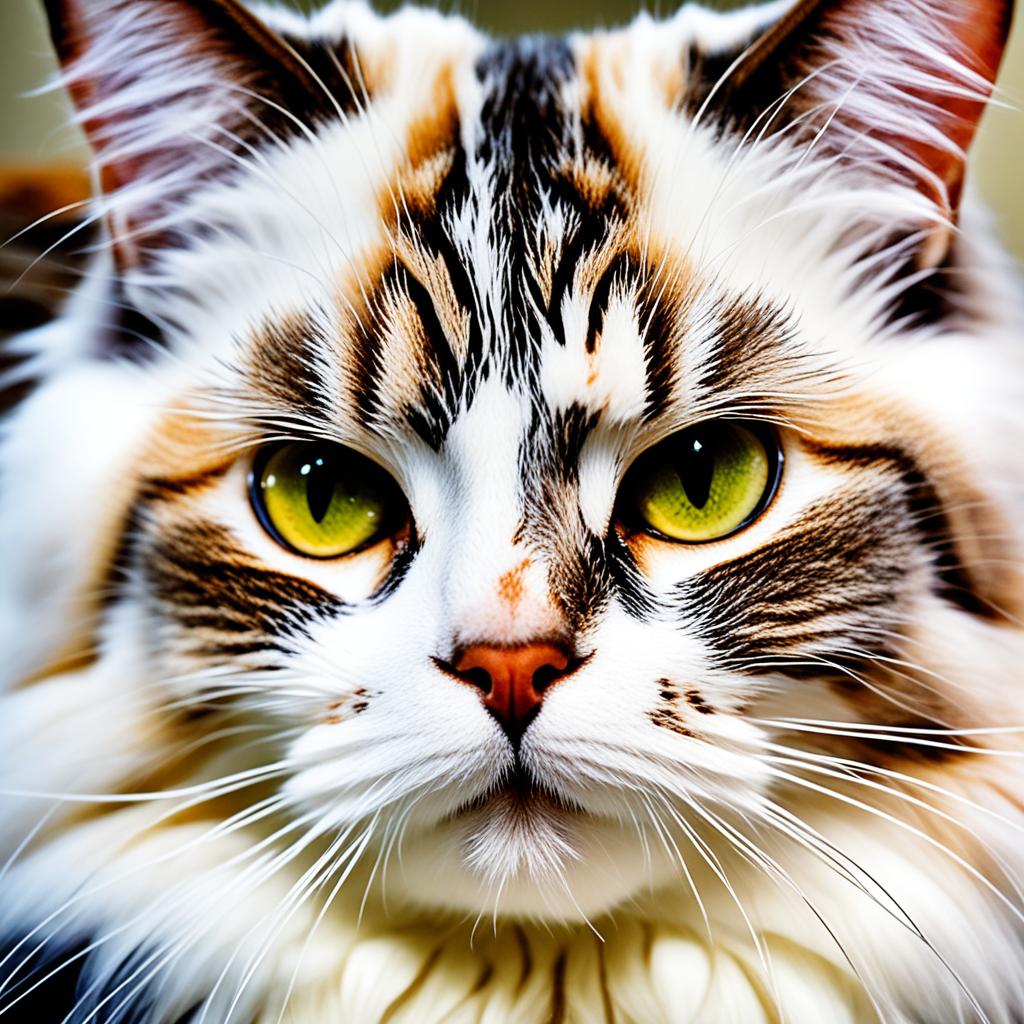
If you own a munchkin cat, knowing when it needs a vet is very important. A vet check is key, especially if your cat seems unwell. Here’s a guide on how to spot the signs, get ready, and follow through with vet visits.
Recognizing Critical Signs
Knowing the signs of sickness in munchkin cats is crucial. Watch out for a few key things like not eating, being tired all the time, throwing up, or not wanting to play. If you see these symptoms, it’s time for a vet check to keep your furry friend healthy.
Preparing for the Vet Visit
Getting ready for the vet is important. Keep a record of any symptoms, behavior changes, and diet changes. This will help the vet diagnose any issues and give your cat the right care.
Follow-up Care and Monitoring
After visiting the vet, follow-up care is essential for munchkin cats. Watch how they’re eating and if they’re back to their usual activities. Regular check-ups will help keep your cat healthy and happy.
Nutrition Tips for Munchkin Cats
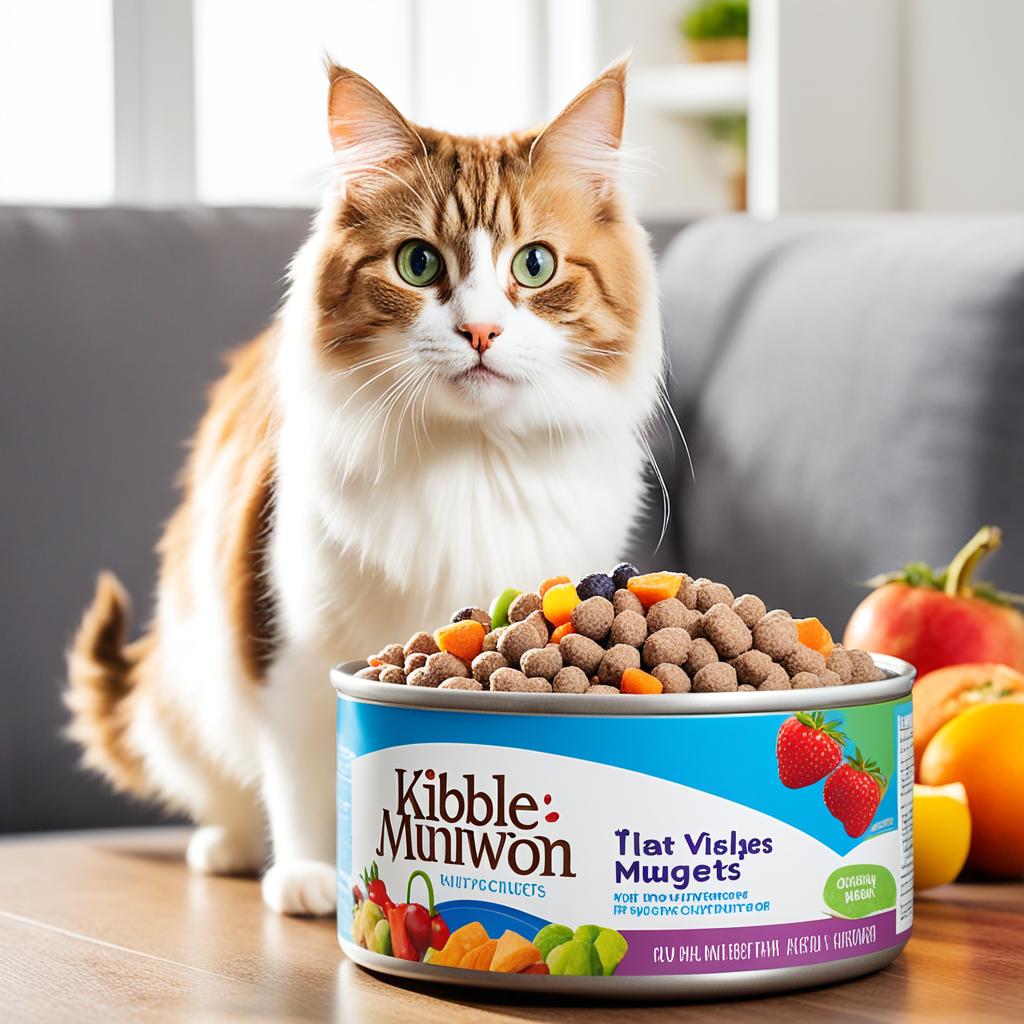
Keeping your munchkin cat’s diet full of nutrients is key for their health. We’ll share helpful tips to make good food choices for your pet.
Choosing High-Quality Cat Food
Choosing the right high-quality cat food for munchkin cats is important. Pick foods rich in protein because cats need it. Find brands that use real meat and don’t include fillers like corn, soy, and wheat. Some good options are Blue Buffalo, Wellness, and Hill’s Science Diet.
Understanding Nutritional Needs
Munchkin cats need different foods as they grow. Kittens need high-calorie diets for their growth. Adult cats need proteins, fats, and vitamins. Seniors might need foods that help their joints and kidney health.
| Life Stage | Nutritional Focus | Example Brands |
|---|---|---|
| Kitten | High-energy, nutrient-dense | Royal Canin, Purina Pro Plan |
| Adult | Balanced protein, fats, vitamins | Hill’s Science Diet, Wellness |
| Senior | Joint & kidney support | Blue Buffalo Senior, Nutro Ultra |
Maintaining a Balanced Diet
For a balanced diet for munchkin cats, mix wet and dry food. This provides the moisture and nutrients they need. Keeping track of how much they eat helps prevent obesity, especially in neutered cats. Check with your vet for diet adjustments as needed.
Preventing Appetite Loss in Munchkin Cats
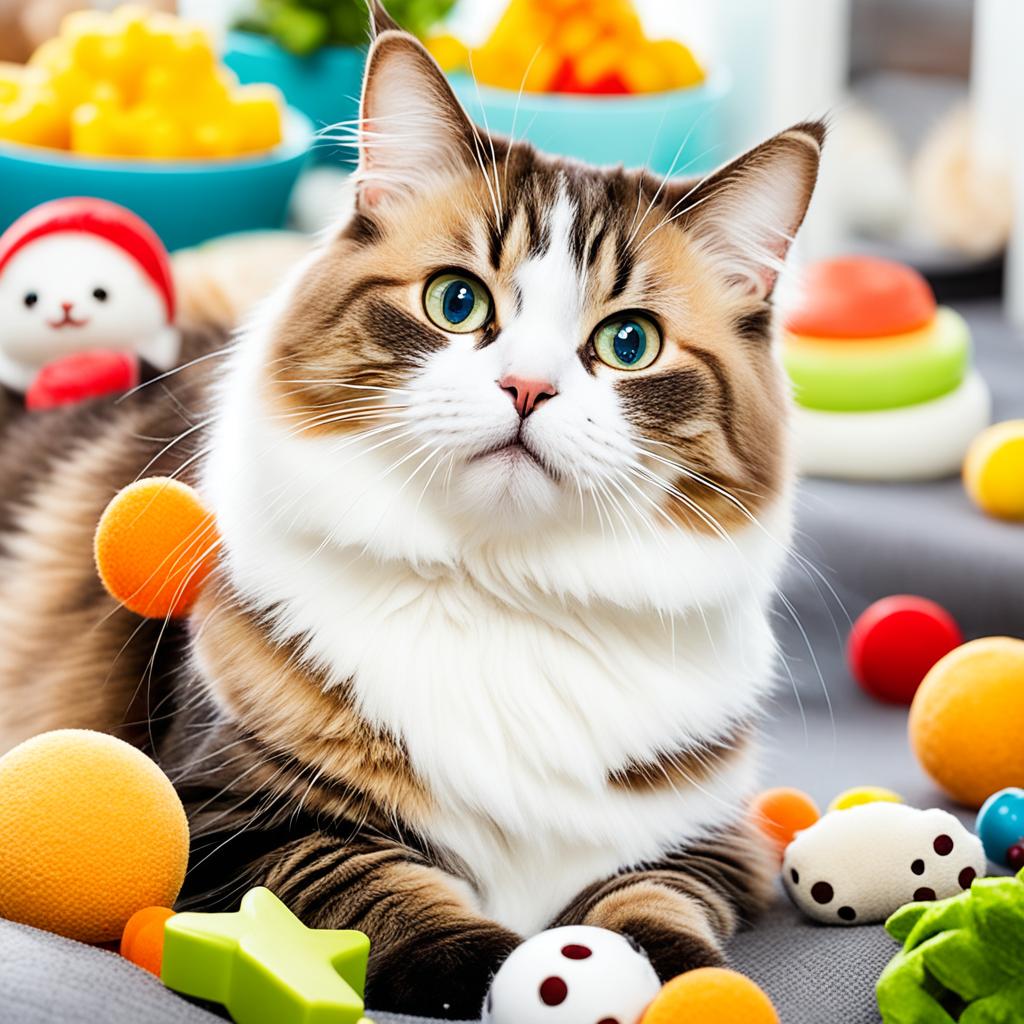
Keeping your munchkin cat’s appetite healthy takes a few steps. You need to look at their whole well-being. This means checking their health, keeping stress low, and giving them lots to do.
Regular Health Checkups
Getting your munchkin cat checked regularly is key. This helps find health issues early. With these checkups, you can make sure they stay healthy and keep eating well.
Maintaining a Stress-Free Environment
Munchkin cats are very sensitive to stress. A peaceful home is important for them. Keep things calm and stable. A good routine helps a lot.
Providing Mental Stimulation
Munchkin cats love to play and stay active. This is good for their minds and their appetite. Use toys and play with them often. A cat that’s mentally busy stays happy and eats well.
Conclusion
Figuring out why your munchkin cat isn’t eating can be a challenge. But understanding this is key. Regular vet visits, watching for signs of trouble, and providing a loving home can help a lot.
It’s vital to cater to munchkin cats’ special diet and medical demands. Give them good food, keep their space calm, and play with them to keep their minds active. This way, your cat will be happy and eat well.
These steps focus on both the physical and mental care for your munchkin cat. A happy munchkin will enjoy their meals. This makes feeding time a wonderful moment for both you and your cat.
FAQ
Why is my munchkin cat not eating?
Your munchkin cat might be avoiding food for several reasons. Stress, changes at home, or teeth problems could be causing this. It could also be due to issues like hyperthyroidism or stomach troubles. Make sure you watch how they act. If they keep not eating, talk to a vet.
What are the common health problems in munchkin cats?
Some common issues with munchkin cats are hyperthyroidism, trouble with their joints, and spine problems. These can affect how they feel and eat. They should see a vet often to catch these problems early.
How can I help my munchkin cat regain their appetite?
To get your munchkin cat to eat, mix up their food, add what the vet suggests, and make their eating spot calm. Also, keep them busy and on a routine. This can make a big difference in their eating habits.
When should I take my munchkin cat to the vet for not eating?
If your cat won’t eat and shows other issues like being tired, throwing up, or acting different, it’s serious. Note down what’s happening and any changes to tell the vet. This will help them see the problem clearly.
What are the behavioral reasons for a munchkin cat’s appetite loss?
Changes at home, like moving or new animals, can worry your munchkin cat. It might also be if their social life or your schedule is different. These can affect how well they eat.
How do medical reasons affect a munchkin cat’s appetite?
Health problems like tummy troubles, teeth issues, or kidney disease can make eating hard for your cat. They could be in pain. This stops them from wanting to eat.
What type of nutrition is essential for a munchkin cat?
Munchkin cats need a good mix of protein, vitamins, and minerals in their food, based on their age. Quality cat food made for kittens, grown-ups, or old cats is best. Neutered cats or those with health issues need special food.
How can I prevent appetite loss in my munchkin cat?
Keeping your cat’s health in check, giving them a calm home, and playing with them keeps them happy. A good routine and love help your munchkin cat enjoy their meals more.




